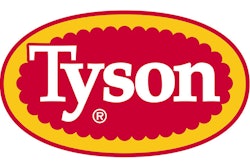One of the most prominent trends currently taking the technology industry by storm is artificial intelligence (AI). As more products like Amazon Alexa and Google Home hit the consumer market, the general public continues to reap the benefits of AI. A more recent phenomenon, however, is that the concept of AI is beginning to be embraced in the B2B industry.
Salesforce can largely be credited with igniting the AI flame when the CRM behemoth announced its new offering at Dreamforce this past October. Since then, conversations surrounding AI are more common at many B2B companies, and their leaders are attempting to determine the real-world implications to their businesses. Industrial companies, in particular, have complex needs that don’t closely mirror the needs of B2C businesses. This naturally affects the types of AI solutions that will work for these companies. In this article, I’ll cover some important distinctions between AI applications in B2B and B2C, as well as offer up some pointers for navigating the growing list of companies touting AI capabilities.
AI in B2B
In B2B, it’s all about expanding existing customer relationships versus the more transactional, customer acquisition focus we see in B2C. The introduction of Einstein has prompted organizations to think in new ways about how AI can help improve their customer relationships. CRM, CPQ and other similar technologies are an essential foundation to improving seller efficiency. Adding a layer of intelligence (more specifically, artificial intelligence) can rapidly accelerate the value and power delivered through a company’s technology stack. For B2B industrial companies, the implications are exciting, prompting company leaders to ask critical questions such as:
- What if AI helped us know every customer as well as our best customer?
- What if AI empowered every sales person to perform like our top performer?
- What if AI enabled my sellers to sell the entire product portfolio?
- What if AI provided deal-specific prices that are most likely to result in a win?
- What if AI could bring sales person smarts to e-commerce interactions?
Industrial companies need AI to deliver action-oriented insights to sales teams so they can drive deep, long-term customer relationships by anticipating customer needs, fighting off competitive threats, growing wallet share in accounts, and quoting consistently across all sales channels. Existing AI applications in B2B focus on retention, growth and flexible pricing that empowers companies to respond to complex dynamics such as inflation, deflation, volatile cost conditions, extreme competition, regional factors and much more. AI applications in B2B truly offer a massive opportunity to optimize the value of every customer relationship and interaction.
Is it Truly AI? Some Pointers
There’s incredible buzz around AI now, which means nearly every solution provider will be touting that they deliver AI, machine learning or deep learning. Be wary of providers that are new to the game and don’t have a deep history in B2B steeped in delivering artificial intelligence to solve the unique problems outlined above. Providers with this rich background paired with best-in-class technologies are the ones to look for. Make sure the output of the AI model is actionable, meaning it’s delivered seamlessly into your existing CPQ, e-commerce platform, CRM, home grown tool, ERP, or otherwise. You want guidance to flow into the applications that your reps use every day. From an architecture standpoint, multi-tenant SaaS is critical and the benefits are vast. From total-cost-of-ownership, to seamless upgrades, to everything in between, multi-tenant SaaS should be on your list of criteria. Most importantly, however, is having the right domain knowledge and expertise in place to build out the guidance model. In other words, to get the best results from AI models, it’s critical for data scientists to have the necessary domain expertise.
I’m personally thrilled that Salesforce has helped spread awareness and sparked interest in artificial intelligence because it will help industrial companies stay in-tune with their customers using AI methodologies for years.
Pete Eppele is Senior Vice President of Products and Science at Zilliant.






















